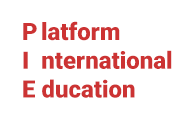HORIZON Europe Framework ProgrammeDeadline: Wednesday 12th of April, 2023In line with the European Green Deal priorities and the farm to fork strategy for a fair, healthy and environment‑friendly food system, and in support of the food safety systems of the African Union and the EU, the successful proposal will contribute to the first priority of the AU-EU High Level Policy Dialogue (HLPD) on Science, Technology and Innovation on Food and Nutrition Security and Sustainable Agriculture. Regional integration, including through greater trade in goods and services, is one of the key aspirations of the African Union’s (AU) Agenda 2063. The launch of the African Continental Free Trade Area (AfCFTA) has the potential to significantly accelerate growth and sustainable development, doubling intra-African trade and food trade in particular. While strong local food systems are a backbone of food security, trade contributes to resilient food systems by balancing between markets. The promotion of trade needs to take a start from the local, national and regional level to integrate food safety practices into all aspects of food production, distribution, marketing and consumption. Food safety is a pre-condition for food trade. It aligns with the recent AU decision to establish the Africa Food Safety Agency to ensure the coordination of food safety at the continental level[1] Projects results are expected to contribute to all of the following expected outcomes:
Scope: Proposals are expected to address the following:
Innovation: Proposals should foresee a space for mentoring and accelerating innovative business concepts, including social innovation and upscaling in view of African or European food business entrepreneurs and start-ups with special consideration of women and the diaspora using cascading funding opportunities. Proposals may involve financial support to third parties e.g. to academic researchers, start-ups, SMEs and other multidisciplinary actors, to, for instance, develop, test or validate developed assessment approaches or collect or prepare data sets or provide other contributions to achieve the project objectives… Consortia need to define the selection process of organisations, for which financial support will be granted. Maximum 20% of the EU funding can be allocated to this purpose. Read more about this funding opportunity .here. |
Fair, healthy and environmentally-friendly food systems from primary production to consumption
Research

